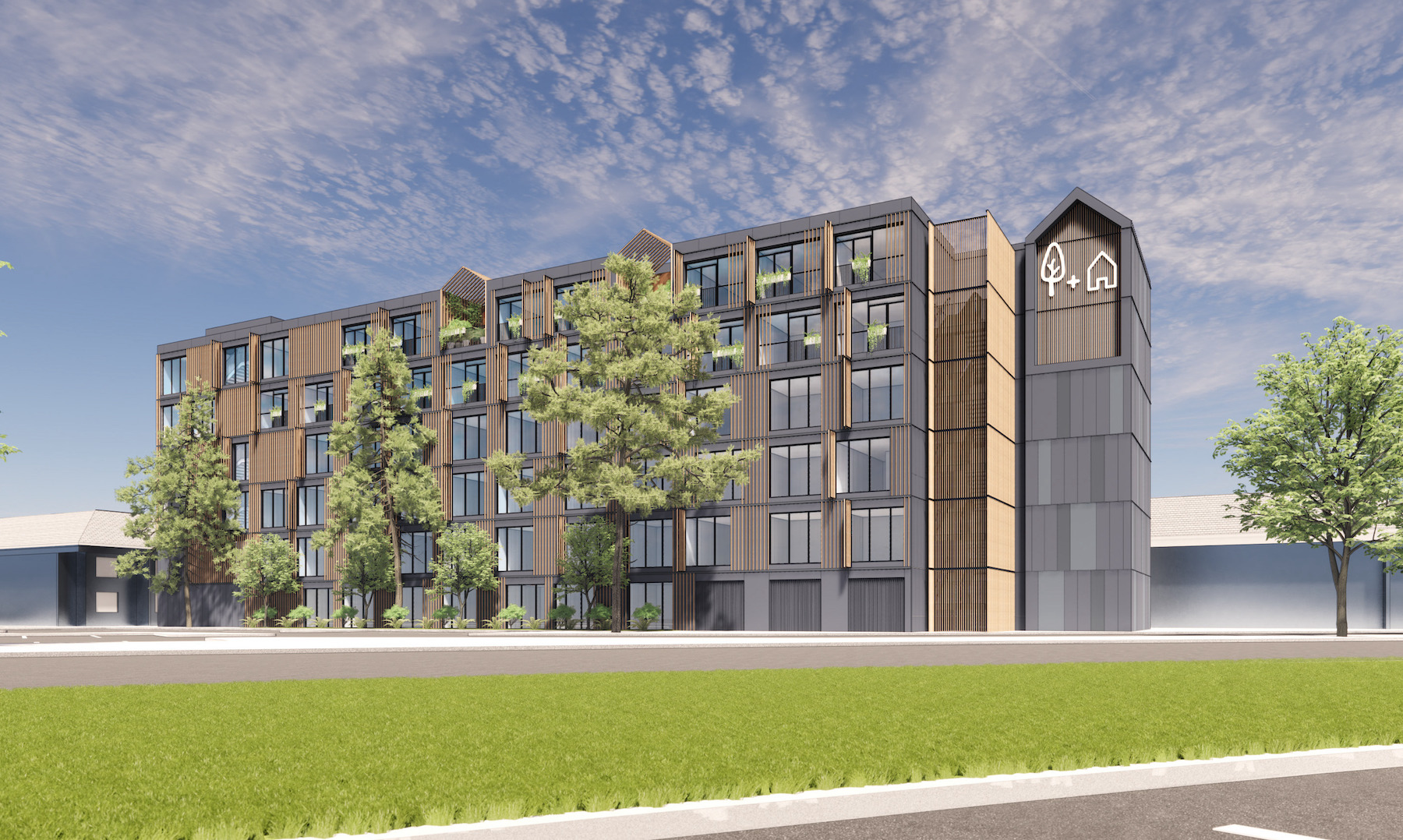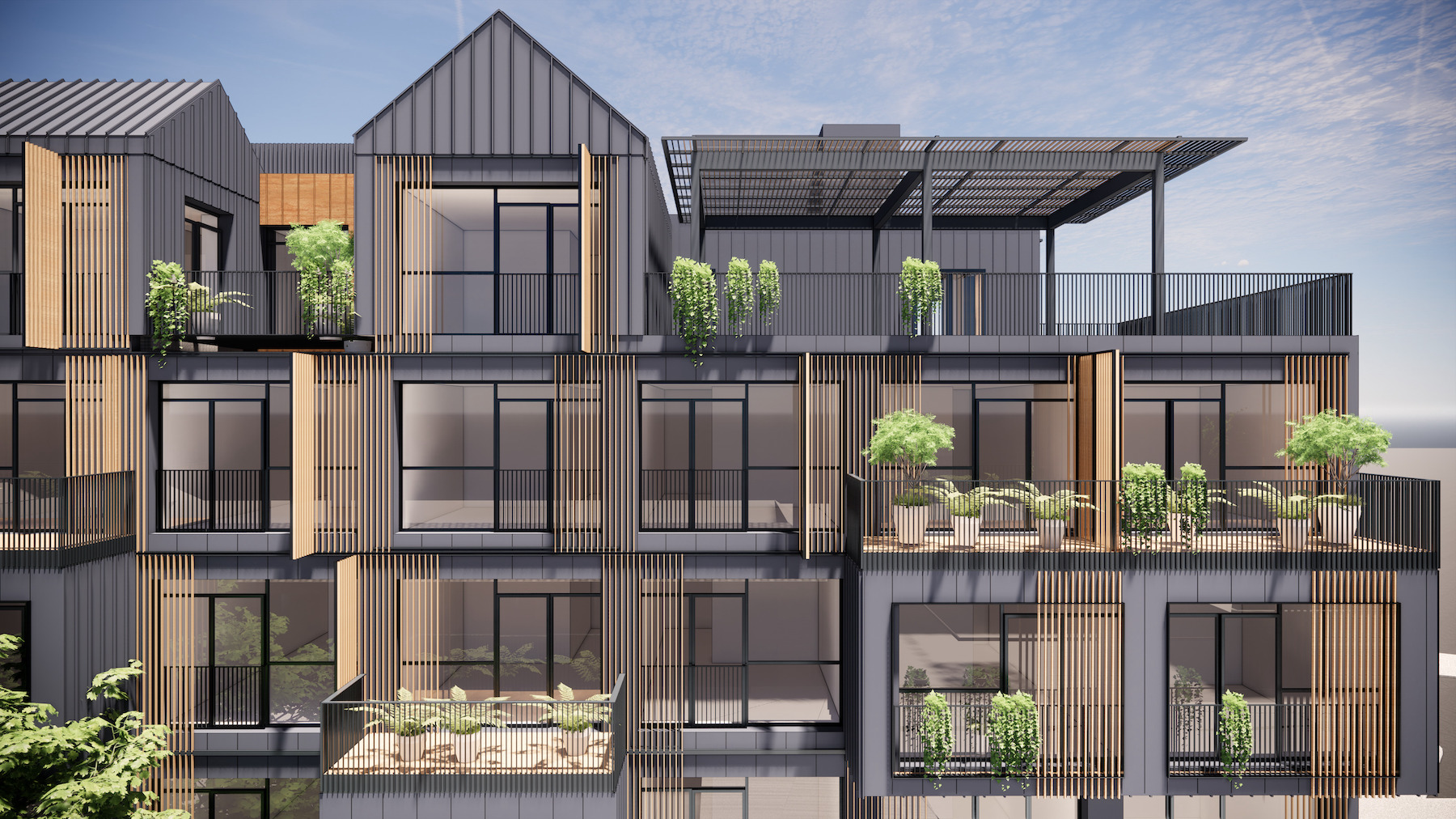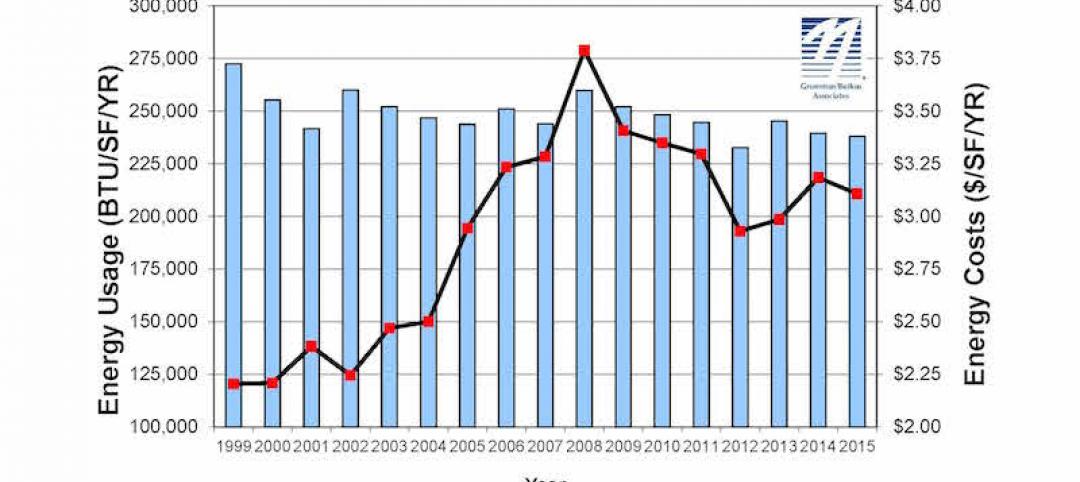Next February, FullStack Modular, a leading supplier of prefabricated modules, is scheduled to begin production for its first project in California, a, 86,000-sf, six-story, 143-room hotel that will be the Treehouse Hotel brand’s debut in the United States.
Starwood Capital Group launched Treehouse in 2019 as a eco-friendly lifestyle concept. It currently operates three properties in the United Kingdom, and is developing the U.S. project through its brands management company SH Hotels and Resorts. Its American hotel will be located in Sunnyvale, Calif., and is expected to open late next year. (Starwood is also repurposing several existing structures onsite for additional hotel rooms and suites.)
In an interview with BD+C, Roger Krulak, FullStack Modular’s president and founder, said that his company will produce 200 modules for this project from its manufacturing plant in Portland, Ore. (FullStack’s other plant is in Brooklyn, N.Y.) He estimates that the production would take less than six months, and assembly another three months. Scottsdale, Ariz.-based Synergy Modular is the project’s general contractor.
Krulak believes that Starwood chose FullStack Modular for its fully integrated system approach: its modules are delivered with electrical, plumbing, and mechanical components and systems installed. The building’s façade is also installed at the factory, as are each units’ fixtures and finishes. The building doesn’t require a concrete core and, where necessary, can be rigged at the factory for seismic resistance. Even furniture can be included. The only on-site construction, said Krulak, involves the building’s hallways and elevators.
According to Starwood, the majority of Treehouse’s rooms will provide private outdoor spaces that include ground floor patios and balconies and terraces on the upper floors.
“The FullStack Modular system is one of the most volumetric modular systems anywhere,” said Andy Nuessle, Synergy Modular’s president, in a prepared statement. “The hotel is 100 percent modular from the foundation to the roof.”
Starwood Capital has not disclosed the cost of the Sunnyvale Treehouse Hotel. On its website, FullStack Modular states that, in general, modular production reduces construction costs by as much as 20 percent, construction time by as much as 50 percent, and construction waste by as much as 67 percent. Krulak estimated that the Sunnyvale project will be completed 30 to 40 percent faster than it would were it build using convention on-site construction methods.
A sliver, but increasing

The Modular Building Institute estimates that buildings assembled from modules produced offsite accounted for 5.52 percent of all new construction in North America in 2021. That represented a doubling of market share in five years, and Tom Hardiman, the Institute’s executive director, told the website Construction Dive that he expects modular’s share to rise to 10 percent by 2026.
Krulak is also optimistic about modular’s growth, especially on the residential side. “Housing in the U.S. is at a huge deficit, and construction has no capacity to meet that need. So off-site solutions are picking up significantly. We get a call almost every day.”
Krulak said that FullStack Modular is looking at “a number of opportunities” in the U.S. and internationally. Earlier this month, the company announced it had entered into a strategic alliance with Saudi Arabian Baytur Construction to pursue opportunities for Vision 2030, a large-scale hospitality and urban tourism initiative whose key goal is to increase the Kingdom’s overall hospitality capacity by more than 70,000 hotel rooms.
Related Stories
Hotel Facilities | Apr 11, 2017
What can hotels learn from Airbnb?
This new kid on the hospitality block is actually an extension of a long-standing tradition of lodging alternatives that range from renting villas in Italy to choosing timeshare properties in Florida.
Reconstruction & Renovation | Mar 30, 2017
Waldorf Astoria New York to undergo massive renovation
Skidmore, Owings & Merrill and Pierre-Yves Rochon prepared the designs for what will be one of the most complex and intensive landmark preservation efforts in New York City history.
Hotel Facilities | Mar 14, 2017
Hotels are becoming the favored places for retailers and consumer products to bolster their brands
Several high-profile names have launched hospitality divisions, often with well-established management partners.
Hotel Facilities | Mar 9, 2017
Robots. 70’s Retro. Biophilia. Co-Living Spaces. Two leading architectural firms single out 18 trends for hospitality this year.
HKS and HBA even see a demand for hotels catering to “agritourism.”
Mixed-Use | Mar 1, 2017
New hotel and residential tower coming to San Francisco’s Transbay neighborhood
The ground-up development will feature 255 hotel rooms and 69 residential units.
Hotel Facilities | Feb 20, 2017
The future of hotel design: Human-centered
Change is inevitable and it impacts on everything, not least on the way we design.
Market Data | Feb 16, 2017
How does your hospital stack up? Grumman/Butkus Associates 2016 Hospital Benchmarking Survey
Report examines electricity, fossil fuel, water/sewer, and carbon footprint.
Hotel Facilities | Feb 15, 2017
Morphosis redesigns Swiss hotel rooms as custom ‘aesthetic experiences’
The redesigned rooms focused on scale, color, tactility, unexpected form, and connections to the natural context.
Hotel Facilities | Jan 30, 2017
New renderings of the 1966 Century Plaza Hotel’s redevelopment
The redevelopment project got underway last summer and is expected to be completed in 2018.
Hotel Facilities | Jan 25, 2017
New Denver hotel will integrate historic 130-year-old fire station into its design
The 1883 Denver Hose Company No.1 building will be fully restored as part of the project.















